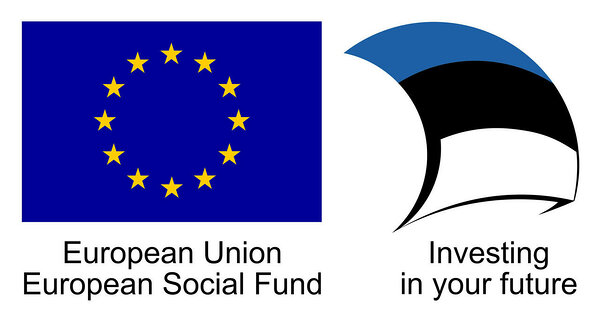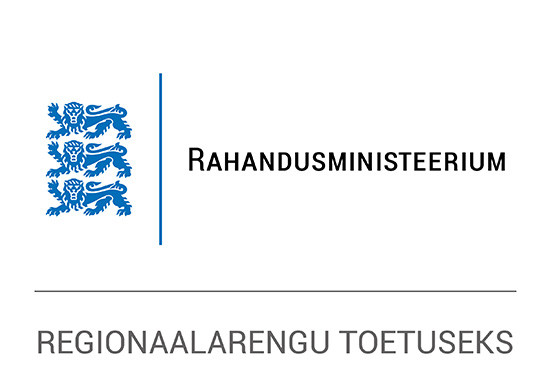A Study on Developing an Integrated Network of Support Services and Support Specialists for Children with Special Educational Needs in Tartu County
Implementation period: September 2021 – April 2022.Budget: EUR 24 600, including financial support of EUR 20 910 (85%) and own contribution of EUR 3 690 (15%).
Provider of finance: the EU Structural Funds.
Action: 2014-2020.12.1 Enhancing national capacity through human resource development and institution building.
Call for proposals: 12.1.4 Local and regional development capacity – Studies and analyses underpinning the renewal of local development strategies – 05.04.2021-05.05.2021.
The project will enhance: 2014-2020.12.1.4 Local and regional development capacity.
The Association of Municipalities of Tartu County is going to launch a study with the aim of analysing the feasibility of establishing a Centre of Competence for Children with Special Educational Needs in the county. The Centre of Competence is going to be tasked with organising the education of children with special educational needs and their support services at different levels, coordinating the system of providing support to the support specialists (exchange of best practices, covision, training etc.) and organising the provision of network-based integrated support services to children with special educational needs and their families while keeping an eye on adjusting the services to the changes in the population of the county.
The study will focus on identifying how to align the service provision methods, infrastructure, staffing needs and all other necessary services with the changes in the local population.
The study is aimed at children with special educational needs aged between 0 – 17 (whereas the statistics is available for the age group of 0 – 19), their families and support specialists.
The study is focussed on the preschool and general education levels and the educational, social and youth work services provided by the local authorities. The study seeks to involve all local authorities and provide an integrated regional approach for the entire county.
The study will be carried out by Cumulus Consulting OÜ, a survey and consulting company with 15 years´ experience.
Cumulus is specialised in providing strategic development planning services to various organisations, carrying out surveys and analyses and preparing and managing projects. Cumulus provides services to local authorities, public authorities, private companies as well as NGOs. Cumulus has contributed to the development of over 150 organisations.
Cumulus helps the organisations dream big and offers support in the phase of programming and implementing changes.
Further information can be obtained from Kairi Vasemägi, Educational Advisor, kairi.vasemagi@tartumaa.ee.
The current situation and the purpose of the project
Based on the data provided by Statistics Estonia, there were all together 36 958 children and young people aged 0 – 19 and 153 912 inhabitants in Tartu County on 01.01.2021. During the school year 2020/21, there were 160 educational establishments in Tartu County, of which 4 state-owned schools and 3 schools owned by the City of Tartu specialised in children with special educational needs. The number of children with special educational needs benefitting from general, enhanced and special support measures amounted to around 1150 during the school year 2020/21. The network of preschool and general education support specialists consisted of around 160 psychologists, speech therapists, special education teachers and social education teachers.
According to the data provided by Statistics Estonia, the population of Tartu County in the age group 0 – 19 either remained stable or even showed a growing trend in various local municipalities in 2018-2021. The population is estimated to grow up to 159 320 by 2041. The population in the age group 0 – 19 is estimated to slightly grow up to 37 269 by 2026 but decline thereafter to 35 928 by 2031, 34 860 by 2036 and 34 321 by 2041, respectively. (See Annex. The Current Situation)
The population is estimated to grow in the City of Tartu and in the vicinity of Tartu but is estimated to decline in the communities and rural municipalities further away from the city.
For example, 7 first grades were opened at Ülenurme Gymnasium in Kambja Rural Municipality close to the border of Tartu, whereas only one first grade was opened at Kambja Basic School, which is located at a distance of 23 km from Tartu. Pupils from all over the county tend to prefer going to school either in Tartu or in the vicinity of Tartu. The communities which are located further away from the city can offer just part-time work to their support specialists – hence the need to have a county-wide approach to the working arrangement of support specialists. Larger educational establishments have difficulties in providing the necessary services to SEN children due to the lack of physical space and shortage of support specialists. The current buildings are not conducive to the use of modern teaching practices.
In 2018, Tartu was short of an equivalent of 74.10 support specialist posts and the county was short of 64.90 posts. There is a dire need of psychologists and kindergarten speech therapists. (See Annex. The Current Situation). The lack of support specialists in kindergartens has a bearing on early identification of difficulties and provision of support services to the children in need.
There is currently no comprehensive and coordinated network for providing integrated support services to children with special educational needs and no support system for support specialists in Tartu County. So far, the feasibility of organising the education of SEN children at the level of the county-wide school network has not been analysed. This issue was highlighted at the roundtable of local authorities who discussed the development project of Kammeri School (a school for SEN children in Tartu County). In Tartu, the provision of support services and the network of support specialists is coordinated by the Centre of Educational Support Services. Nevertheless, in order to ensure sustainability, there is a need to establish a joint, integrated, network-based, cross-sectoral cooperation system covering the whole region of Tartu and Tartu County.
The study will help identify the premises of aligning the service provision methods, infrastructure, staffing needs and all other services with the changes in the population.
The study is aimed at children with special educational needs aged between 0 – 17 (whereas the statistics is available for the age group of 0 – 19), their families and support specialists.
The study focusses on the preschool and general education levels and the educational, social and youth work services provided by the local authorities. The study seeks to involve all local authorities and devise an integrated system for the entire county.
The aim and outcome of the project
The long-term objective of the project is to establish a Centre of Competence in Tartu County, which follows changes in the population and supports the organisation of teaching and support services to SEN children at various levels, coordinates the system of providing support to the support specialists (exchange of best practices, covision, training etc.) and organises the provision of the support services integrated in the network to SEN children and their families.
The future network is going to be set up as a “One Stop Shop”, which means that the families with SEN children will have access to all necessary information and guidance in one place. The integrated system of support services will be well thought out and will operate on the principle of cooperation between educational establishments and all local authorities in the county. The short-term objective, based on the results of the study, is to establish an evidence-based platform for discussion and cooperation between local authorities focussing on achieving the organisation of high-quality and efficient teaching of SEN children in the school network of the county.
The results of the study will also directly feed into the renewal of the County Strategy establishing the objectives and activities for setting up the Centre of Competence. The analysis of the entire school network will provide a clear outline of the opportunities for synergies and cooperation within local municipalities and between local municipalities in organising the education of SEN children in the best possible way. The study will focus on analysing the current capacity of educational establishments to implement inclusive education for SEN children – namely, the current strengths and challenges.

